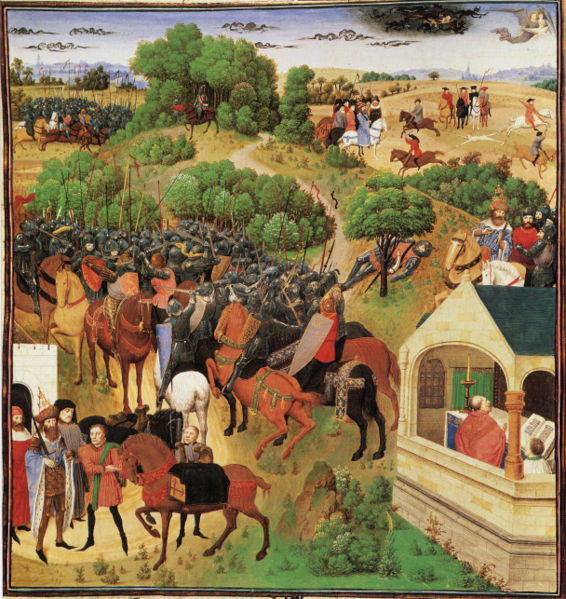Oliver, sometimes referred to as Olivier de Vienne or de Gennes, is a legendary knight in the Matter of France chansons de geste, especially the French epic The Song of Roland. In the tradition, he was Roland's closest friend, advisor, confidant and brother-in-law to be, one of Charlemagne's twelve peers and brother of Aude, Roland's betrothed. He dies with Roland at the Battle of Roncevaux Pass. Some critics have linked his name to the olive tree, a biblical symbol of divine wisdom.
Oliver (right) depicted on the monument of Charlemagne et ses Leudes in Paris
The Song of Roland is an 11th-century chanson de geste based on the Frankish military leader Roland at the Battle of Roncevaux Pass in AD 778, during the reign of the Carolingian king Charlemagne. It is the oldest surviving major work of French literature. It exists in various manuscript versions, which testify to its enormous and enduring popularity in Medieval and Renaissance literature from the 12th to 16th centuries.
The eight phases of the Song of Roland in one picture; illustration by Simon Marmion from an illuminated manuscript of the Grandes Chroniques de France (15th century), currently preserved in the Hermitage Museum, St. Petersburg
Detail of manuscript showing "AOI" at the end of the second line
Roland blows his olifant (ivory hunting horn) to summon help holding his sword Durendal while mounted on his horse Veillantif with Roland's Breach in the background in the midst the Battle of Roncevaux.
The death of Roland at the Battle of Roncevaux, illuminated c. 1455–1460 by Jean Fouquet





